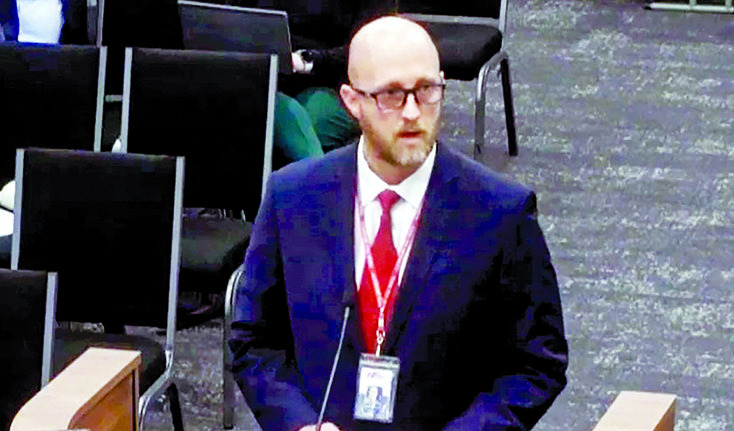HUTTO – With water scarce and infrastructure costs soaring, Hutto City Council discussed a new policy that would require developers to pay impact fees in advance, as well as paying reservation fees for their future water and wastewater needs.
City Engineer Matt Rector presented the new water service and development fee protocols at the Dec. 14 council meeting, after discussions at a Dec. 7 meeting led Council members to request policy changes. The reservation fee is a new, non-refundable fee that developers will pay to reserve future water capacity.
“Upon approval of the (Service Extension Request) or the (Municipal Service Agreement) by council, the applicant would have so many days to pay their reservation fee. It’s a non-refundable fee that is due annually depending on when they actually use their SER. It would expire on the fourth anniversary so they can’t just reserve LUEs (Living Unit Equivalents) and just sit on them forever,” Rector said.
The policy would charge developers a nonrefundable fee to reserve water capacity. The fee would be due annually and give the developers up to four years to complete the project and use the water. Members of the council debated whether four years were too long to give a developer, and directed staff to rework the policy considering three years at most.
The new policy also states that developers would have to prepay their infrastructure impact fees. “That money would be set aside in an escrow account because if then they walk away from the project we would need to refund that money, but it they move forward with the project we could use those impact fees to construct whatever improvements are part of the (Capital Improvement Plan),” Rector said.
City Manager James Earp was concerned the policy may discourage developers.
“I don’t want to make it where the development community isn’t willing to do SERs because we’re going to ask them to cut us a half million dollar check to prepay everything. That’s what I don’t want to have happen,” Earp said.
The city manager explained that a person who wants to develop a piece of property may not own the property yet, or have arranged financing for a project in its initial stages. He said an SER is intended to answer developers’ questions regarding utility and infrastructure availability to the land, but when he tells them they have to prepay impact fees, he believes that will halt the developers’ interest. He said for developers looking to create a neighborhood with thousands of LUEs, that non-refundable reservation fee will be “a very big number” in addition to the impact fee.
Rector said the policy was written to make the water reservation fee due after council accepts the SER and then to require the payment of impact fees prior to final platting.
“The city is having to pay a reservation fee to reserve water. And I would like to pass that along to the developers. I would like them to pay the reservation fee so we don’t have to put it onto the existing citizens to pay it,” said Mayor Pro Tem Peter Gordon.
Snyder agreed. “Water is only going to get tighter,” he said. “We’re growing so fast that the people who really want to build will like this. The people who are trying to invest, get locked in at low prices and wait for the market to turn around, those are the guys and ladies who are not going to like this plan.”
Council did not take action to approve the new policy, and instead directed city staff to come back with a new version of the policy that reflects the changes discussed during the meeting.

City Engineer Matt Rector reviews a new policy with the Hutto City Council. Photo courtesy of city of Hutto.



